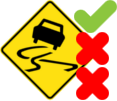Puerto Rico (Spanish for 'rich port'; abbreviated PR; Taino: Boriken, Borinquen), officially the Commonwealth of Puerto Rico (Spanish: Estado Libre Asociado de Puerto Rico, lit. 'Free Associated State of Puerto Rico'), is a Caribbean island and unincorporated territory of the United States. It is located in the northeast Caribbean Sea, approximately 1,000 miles (1,600 km) southeast of Miami, Florida, between the Dominican Republic and the U.S. Virgin Islands, and includes the eponymous main island and several smaller islands, such as Mona, Culebra, and Vieques. It has roughly 3.2 million residents, and its capital and most populous city is San Juan. Spanish and English are the official languages of the executive branch of government, though Spanish predominates. Puerto Rico was settled by a succession of indigenous peoples beginning 2,000 to 4,000 years ago; these included the Ortoiroid, Saladoid, and Taíno. It was then colonized by Spain following the arrival of Christopher Columbus in 1493. Puerto Rico was contested by other European powers, but remained a Spanish possession for the next four centuries. An influx of African slaves and settlers primarily from the Canary Islands and Andalusia vastly changed the cultural and demographic landscape of the island. Within the Spanish Empire, Puerto Rico played a secondary but strategic role compared to wealthier colonies like Peru and New Spain. By the late 19th century, a distinct Puerto Rican identity began to emerge, centered around a fusion of indigenous, African, and European elements. In 1898, following the Spanish–American War, Puerto Rico was acquired by the United States. (Source: Wikipedia.org, CC BY-SA)

